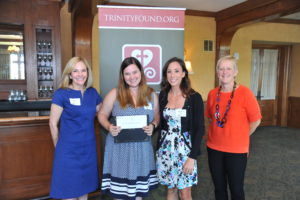Non-traditional Therapies for Survivors of Human Trafficking
The CCAHT thus requests funding to research and plan a non-traditional therapy program for its clients. Funds will be used to send direct care staff to investigate best practices in therapy provision; conduct site visits to agencies with relevant programs; vet local practitioners of non-traditional modalities, and consult with attorneys to develop MOU contracts. The CCAHT anticipates reaching approximately 50 new HT survivors annually through this program (in addition to the ongoing support that this program will provide to existing clients)
With access to non-traditional therapies, our clients can reclaim their mental, emotional, and physical health and acquire the tools needed to maintain good health even after graduating from our program, ultimately decreasing their risk for re-victimization. These changes will be measured through careful data collection and documentation via monthly goals assessments, quarterly CANS-CSEbased assessments, and CORE-OM surveys. Official therapy practitioners and providers would be vetted as part of the phase I research and planning process. Multi-year funding from the Tennessee Office of Criminal Justice Programs (VOCA), United Way, and the Haslam Family Foundation/Pilot Flying J support direct services initiatives of the CCAHT.

